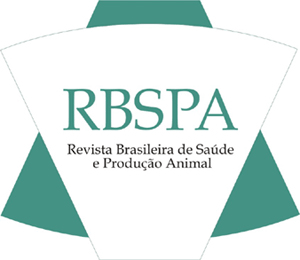SUMMARY
Birds show poor utilization of phytic phosphorus in their diets because of the lack of endogenous enzymes to digest phosphorus and make it bioavailable. Therefore, the objective of this study was to evaluate phytase supplementation in the diets of laying quails. Eighty quails were used in a completely randomized experimental design with five treatments and four replicates of four birds each. The treatments were as follows: 0.35% Pd; 0.20% Pd; 0.20% Pd + 500FTUs of phytase; 0.09% Pd; 0.09% Pd + 500 FTUs of phytase. The birds were housed in metallic batteries during a trial period of 21 days, for evaluation of egg production, egg weight, feed intake and feed conversion. After being collected, the eggs were sent to the nutrition laboratory of the department of zootechnics of the CEO/Udesc, where analyses of albumin, yolk and shell quality were performed. The results were subjected to analysis of variance, and the differences between the averages were compared using the Tukey test at 5% of significance. No differences (P> 0.05) were observed in terms of performance and egg quality parameters. We conclude that the inclusion of phytase in the diet of laying quails can be accomplished without compromising the performance and quality of the eggs. Additionally, 0.09% of 22 disponible phosphorus can be used to grant adequate performance for 21 days.
Keywords:
Enzymes; minerals; nutrition; phosphorus; quail production
